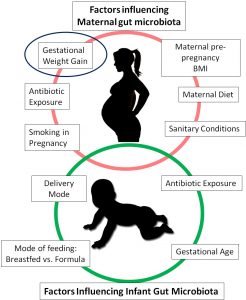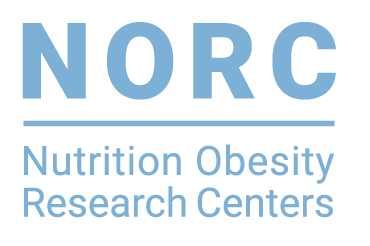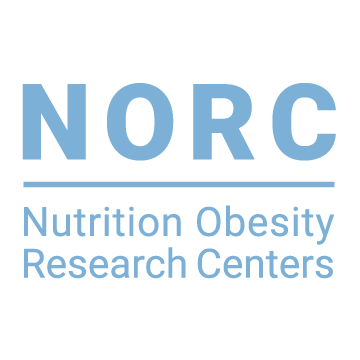 Summary
Summary
With support from a NORCH Pilot and Feasibility Grant, Dr. Lauren Fiechtner and others recently reported that gestational weight gain affects the composition and diversity of the infant gut microbiome. Using data and infant fecal samples from 84 infant-mother pairs, four distinct microbiota profiles were identified: Bifidobacterium-dominant, Enterobacter/Veillonella-dominant, Bacteroides-dominant, and Escherichia-dominant. Infants whose mothers had more weight gain during pregnancy were less likely to have a Bacteroides-dominant profile (risk ratio 0.83 [95% CI 0.71-0.96] per 1kg of gestational weight gain). Further, a larger amount of gestational weight gain predicted lower bacterial diversity.
Key Findings
The degree of maternal weight gain during pregnancy alters the typology and diversity of the gut microbiome in infancy.
Citation
- Robinson A, Fiechtner L, Roche B, Ajami NJ, Petrosino JF, Camargo CA Jr, Taveras EM, Hasegawa K. Association of Maternal Gestational Weight Gain With the Infant Fecal Microbiota. J Pediatr Gastroenterol Nutr. 2017 Mar 7. PMID: 28272161.
Read More: Journal of Pediatric Gastroenterology and Nutrition
Research Details
- Research Center: Harvard Medical School
- Featured NORC Member(s): Lauren Fiechtner, MD, Instructor in Pediatrics, Massachusetts General Hospital; Carlos Camargo, DrPH, MD, Professor of Emergency Medicine, Massachusetts General Hospital; Elsie Taveras, MD, MPH, Professor of Pediatrics, Massachusetts General Hospital.
- Center Contribution: Dr. Lauren Fiechtner is a P&F award recipient.


 Summary
Summary